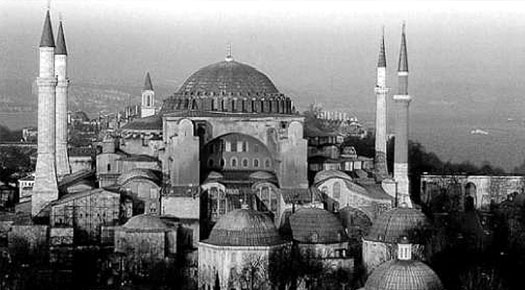
As Islamic countries in the Middle East continue to persecute Christians, Turkey recently took an unlikely turn by allowing its minority Syriac Christians to build a new church for the first time since the Ottoman Empire fell in 1923. The new church, dedicated to Turkey’s small Syriac Christian community, is expected to be built in Yesilkoy, an Istanbul suburb on the shores of the Sea of Marmara, where other ancient Roman Catholic, Armenian and Greek Orthodox churches are located as well.
Syriac Christianity is a religious denomination with traditional Middle-Eastern roots and its adherents still speak in the ancient Aramaic dialect, which dates back to 5th century BCE and is believed to be the language spoken by Jesus Christ. In Turkey alone, approximately 20,000 people constitute the Syriac Christian population, with most of them living in the southeastern parts of the country. The remaining majority of Christians belong to either the Roman Catholic Church or the Greek Orthodox Church.
“It is the first since the creation of the republic,” a government source reported last week, while explaining that the creation of new churches was banned after the Ottoman Empire fell in 1923. “Churches have been restored and reopened to the public, but no new church has been built until now.”
Despite Turkey’s 99 percent population comprised of Muslims, the officially secular government recently sanctioned the new church to be built on land that was donated by the local council and paid for by a Syriac Christian group. Social commentators have gone on to say the new church will serve as a symbol of solidarity among all world religions, as Turkey prepares to join the European Union in the near future.
Even though Turkey was originally a Christian nation, it has had a long history of Muslim tradition that dates back to the rise of the Ottoman Empire in 1453 when Constantinople, now known as Istanbul, was first conquered by Ottoman Turks under the leadership of Sultan Mehmed II. At that time, the Sultan ordered Hagia Sophia Greek Orthodox Church to be converted into an imperial mosque. However, in 1935, the building was finally secularized and reopened to serve as a museum.
In July 2013 though, controversy arose once again after Muslims met at Hagia Sophia for their first Friday prayers during Ramadan. Several Christians alleged Turkey was trying to erase its Christian past.
Adnan Ertem, general director of Foundations, disagreed with those allegations, saying, “The population of this city consists of Muslims. If the majority is Muslims, the places of worship need to be mosques. Suppose that the majority of this city was Christians or Jews, would they keep this place as a museum?”
A local court thereafter ruled that the occupation of Hagia Sophia for Ramadan prayers was in fact illegal and ordered that such events would not take place at the museum, in an attempt to show Turkey’s stance in favour of the separation of church and state. The ruling political party in Turkey,
Adalet ve Kalkinma Partisi (AK Party), is often described as Neo-Ottomanist and is believed to be pro-western culture. However, the party itself rejects all notions of it being Islamic and describes itself as conservative-democratic.
No information has been divulged as yet about when the construction of the new church will begin or end.
Photo Credits: The Tesla Society
